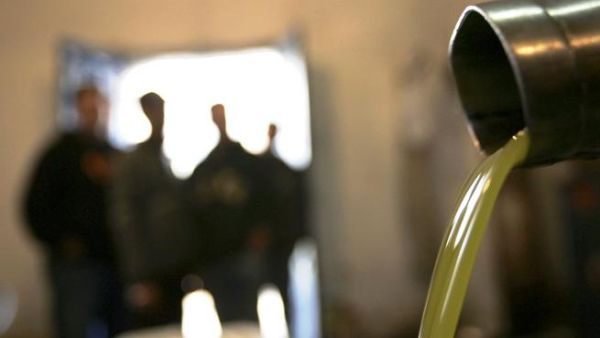A study conducted for over 20 years in Finland, Japan, Greece, Italy, the Netherlands, the United States and Yugoslavia, found that the diet of populations who live on the Mediterranean gives rise to one of the highest life expectancies in the world with drastic reductions in incidences of heart disease and a few types of cancers as well as many other diseases that are all related to diet.
A healthy diet foresees, above all, moderate food consumption, and secondly, careful attention to the chemical composition of food.
The dietary model designated by Ancel Keys which later became known as the “Mediterranean diet”, bases its reasoning on a few nutrients and among which, as far as the type of lipid to consume, Extra Virgin olive oil has a fundamental role for its concentration of monounsaturated and polyunsaturated fatty acids.
Olive oil is an integral part of the "Mediterranean diet" which is associated with sensible tasty portions and slower, more enjoyable eating. People who have a "Mediterranean diet" have been shown to have a remarkable variety of health benefits.
The olive oil in the Mediterranean diet can quickly satisfy hunger and lead to fewer total calories ingested at mealtime. It is unclear if any single component of this diet is responsible for these health benefits or if it is a combination of olive oil and a diet high in vegetables, fruit and fish. Extra virgin olive oil is one of the few oils that can be eaten without chemical processing.
Most of the countries in the Mediterranean are best-known not just for for sun, sea and sand, but the region is also known as one of the best sources for olive oil, a traditional crop of the region with Greece and its islands, Italy, Spain and North African countries in the forefront.
Libya too is Mediterranean, it has been blessed by natural resources, and when it comes to olive oil, at one time, it looked as if the Gharyan area could follow the example of other countries in the region and also become a real source of this so-called 'green gold of the Mediterranean'.
Now, it seems, Libya, that also has the black gold (oil and gas for the industry) is once again turning to olive oil to compete with its Mediterranean neighbours, and conquer European markets and diversify its hydrocarbon-dependent economy. The crop easily tolerates spells of drought, is a perfect fit for the arid Libyan climate.
Youssef Ba, writing for AFP, quotes an official of the export promotion centre in Tripoli, Taher al-Zweibek. saying, that “Libya has decided to promote the quality of its olive production to make its olive oil more competitive and increase exports to Europe."
He went on to say: “The centre's new strategy involves all stakeholders in the production chain of the olive tree, particularly the private sector to boost its productivity and conquer foreign markets."
According to the UN Food and Agriculture Organisation, FAO, Libya ranks as the world's 12th largest olive oil producer, accounting for 0.25 percent of global production, but it lags well behind the world's top producer Spain (43 percent) and its regional neighbours Morocco (4th, 10.6 percent), Tunisia (6th, 4.4 percent) and Algeria (8th, 1.7 percent).
Quoting figures provided by the country's agriculture ministry, the correspondent said that Libya, a desert country with an area of 1.76 million square kilometres, has eight million olive trees and produces 160,000 tons of olives for 32,000 tons of oil.
The country has 3.6 million hectares of arable land, just two percent of the total area of the country. So agriculture ministry official Saad al-Kunni has told the AFP correspondent, that Libya is currently experimenting with a new kind of olive imported from Spain, the Arbequina, which is famous for its highly aromatic fruit.
Introduced in Europe during the 17th century, this variety is mostly grown in Spanish Catalonia.
Kunni added that after an experiment that yielded encouraging results, some 1,900 hectares were planted with this variety in two agricultural projects.
Libya, which relies exclusively on the export of hydrocarbons for its revenues, has failed to diversify its economy despite sectors with enormous potential for development such as tourism and fisheries.
The Libyan authorities have repeatedly expressed the desire to diversify Libya's revenues without implementing specific strategies, and speaking on the sidelines of a Tripoli exhibition of Libyan dates and olives, Zweibek noted that the new strategy also focuses on improving the packaging of finished products to make them more attractive.
He said that a national label will be created and used to identify Libyan products in order to facilitate marketing while establishing a relationship of trust with the consumer.
Zweibek has reportedly added, that the new authorities in Libya are trying to break away from the policies of the former dictatorial regime, during which bureaucracy prevented the promotion of any exports other than hydrocarbons.
Until now, the exportation of olive oil was the initiative of a few individual farmers and owners of olive presses, so Zweibek stressed that the state "will become more involved in assisting the whole production chain, from making the choice of which variety to plant to the transformation of the packaging process."
He said that the centre will also conduct studies on the European market and ensure the collection of data for the benefit of Libyan exporters to help them conquer these markets.

Libya is trying to diversify its economy into the green gold of olive oil







